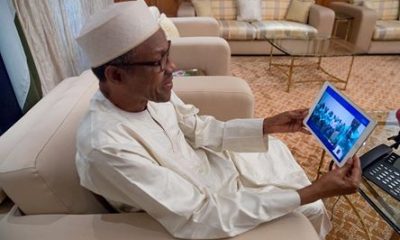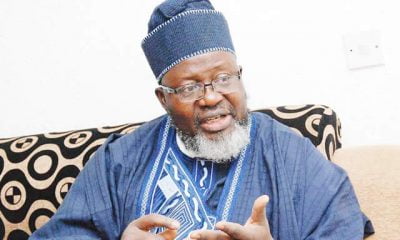Nigeria News
71% Of Nigerians Don’t Have Access To Regular Internet – Report

A recent report by the Groupe Special Mobile Association (GSMA) revealed that a significant 71% of Nigerians do not have regular access to mobile internet.
“While 29 per cent of Nigerians are regularly using mobile internet, there remains untapped potential; 71 per cent are not accessing these services regularly. An improved policy environment has the potential to help the industry boost coverage and adoption, resulting in 15 million additional internet users by 2028. However, the sector faces challenges to infrastructure deployment,” the report stated.
Naija News reports that details of the study were disclosed during the report’s launch in Abuja, highlighting a critical gap in digital connectivity amidst ongoing discussions about possible tariff increases by Nigerian telecom operators.
The telecom industry is currently advocating for an increase in tariffs to counter various operational challenges. However, the government is pushing for alternative solutions rather than price hikes.
The GSMA report underscored the challenges hindering the expansion of telecom coverage, which include cumbersome and costly rights-of-way acquisition processes and a complex tax environment. These factors collectively make it difficult for the industry to sustain investment levels.
Despite these hurdles, the report optimistically noted that Nigeria could add 15 million internet users by 2028 with appropriate policy adjustments. It emphasized that achieving universal access to digital connectivity hinges on a wider digital transformation of the Nigerian economy.
The report details the sector’s challenges, stating that “An improved policy environment has the potential to help the industry boost coverage and adoption, resulting in 15 million additional internet users by 2028. However, the sector faces challenges to infrastructure deployment.”
The report also identified key obstacles, such as the rigorous process of securing rights of way and a layered tax regime, which together increase operational costs and stymie sustainable investments. Added financial pressures from rising fuel prices and increased governmental fees further strain telecom operators’ ability to maintain healthy investment flows.
The GSMA report recommended several policy measures to foster a more enabling economic and regulatory environment for the mobile industry.
These include establishing a legal framework to protect critical national infrastructure, simplifying rights-of-way issuance, reducing the tax burden, and cultivating a regulatory climate conducive to robust investment.
“Future policies should be geared towards reducing the cost and complexity of infrastructure rollout to encourage investment and boost the adoption of mobile broadband,” the report advised.
It further highlighted the far-reaching implications of such policy enhancements, noting, “The impact of such actions would go far beyond mobile, driving productivity gains across the economy and creating millions of new jobs in Nigeria.”










